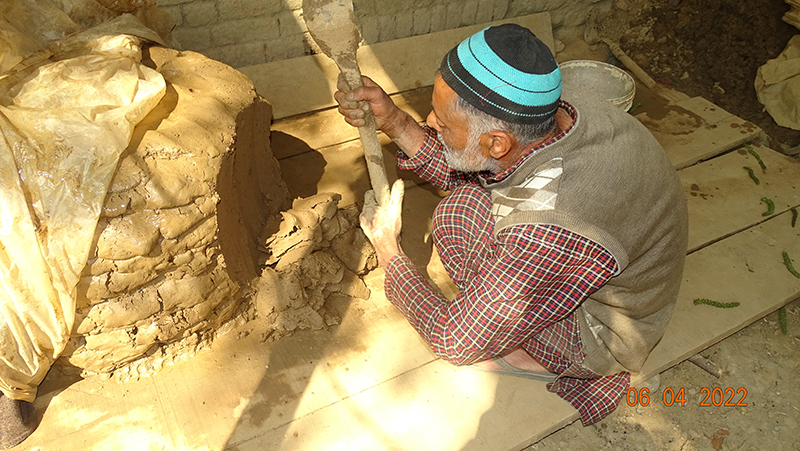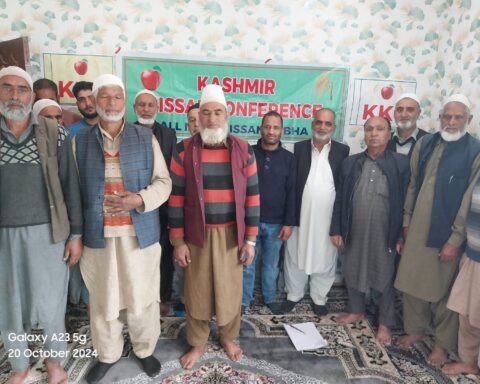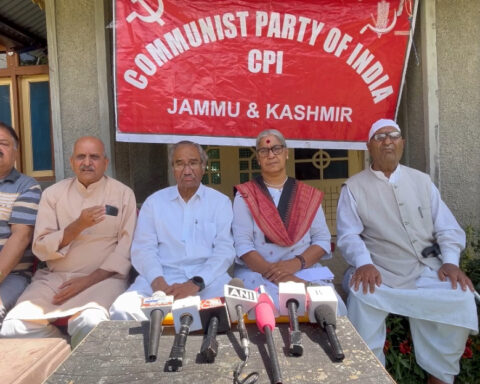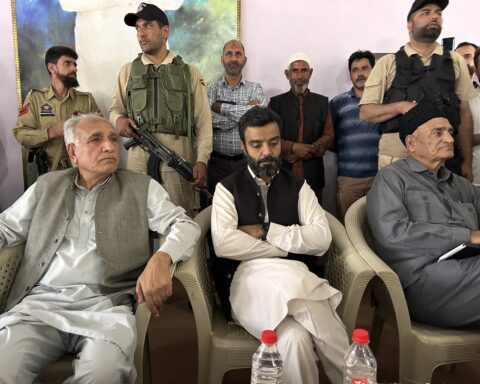Poonch : A year ago, forty-nine-year old Ghulam Nabi, as a routine, stepped out of his house to perform ablution before offering Namaz (prayer). As soon as he started walking away from his house, he was attacked by a full-grown bear. A resident of Baila village in Mandi tehsil of Poonch district in Jammu and Kashmir, Ghulam received critical injuries on his face and head and is yet to recover fully.
Ghulam looks after his family of 5 members by working as a daily wage laborer in this hilly region. As a result of this human-wildlife conflict, most of his earnings goes into repaying the loan. ““Soon after the injury, I was taken to the Sub-District hospital in Mandi and then later transferred to SKIMS hospital in Srinagar. I have taken a loan of more than Rs 50,000 for my treatment. I work hard to support my family. It would have been a relief if some monetary help was offered by the administration for my treatment,”informed Ghulam.
Ghulam is the one of the few victims who were lucky enough to survive the attack. Sakina Bi, 56, another resident from the same village was attacked by two bears while she was working in the Maize field. Sakina has two sons, both unemployed, while her husband has passed away. The family survives on whatever they grow in their field. The injuries after the attack have put tremendous amount of pressure on this destitute family to arrange money for the treatment.
Fortunately, the villagers came forward and helped Sakina with her treatment. Khawaja Abdul Razak, the sarpanch of the village, collected the money from the villagers and transferred to the bank account of Sakina’s son. “As there is no compensation provided by the administration, neither for the crop nor for Sakina’s injury, we decided to support her for the treatment,” said Abdul Latief, a local from the village.
Over the last decade, there has been a major rise in the Human and Wildlife Conflict in Jammu and Kashmir. A report, while quoting official data, says that nearly 200 people have lost their lives and over 2,000 have been injured in human-wild animal conflict across Jammu and Kashmir since 2011. “Of the total figures of deaths and injuries, Kashmir reported 118 deaths and 1,877 injuries, while the Jammu region reported 78 deaths and 448 injuries.” According to local sources, Mandi tehsil in Poonch alone has had more than 20 cases of bear attacks in the last 4 years.
As a solution to this human-wildlife conflict, cages have been set up to capture the wild animals. “We have a cage in which we can capture these wild animals and take them to a wildlife sanctuary to provide a natural habitat. But I am afraid this may not be the solution to the growing conflict. We need to come up with more forms of mitigation,” informed a wildlife officer.
The locals firmly believe that the unplanned development activities have led to the shrinking of forests in the recent past. The firewood used by locals also comes from these forests. Bereft of their shelter and food, these wild animals have started shifting from their natural habitat to areas inhabited by humans thereby increasing the frequency of interactions between animals and villagers. Abdul Ghani, another local, said, “Situation was quite different twenty years ago. Wild animals stayed deep in the dense forests and would hardly visit our villages. Although we did not have roads and other basic facilities then, life was peaceful. Today, we fear for our lives and our crops as many people have been attacked by wild animals in the last few years.”
The possibility of such attacks increases during the summer season. With several fruits and crops harvested in the villages, animals turn to these populated areas for food. On some occasions, villagers also end up killing these wild animals to save the lives of their loved ones. The wildlife department’s efforts remain to save lives of both humans and animals, but a more strategized, effective plan has become the need of the hour. Such populations are bound to coexist with animals but the constant threat to lives and livelihood forces them to take extreme steps. Lack of an effective strategy, otherwise, will lead to further increase in the frequency of such attacks.
(By special arrangement with Charkha Features)








